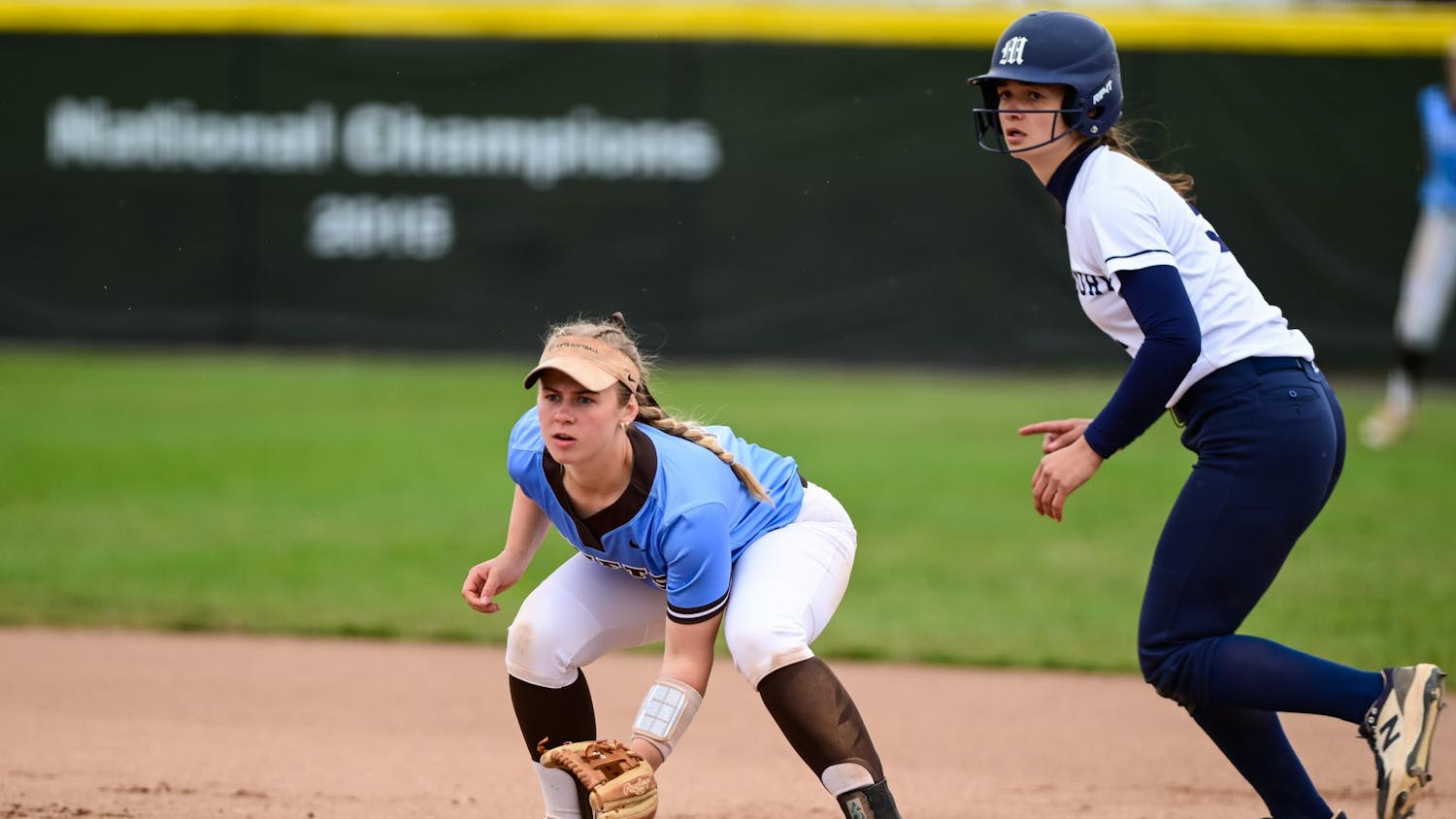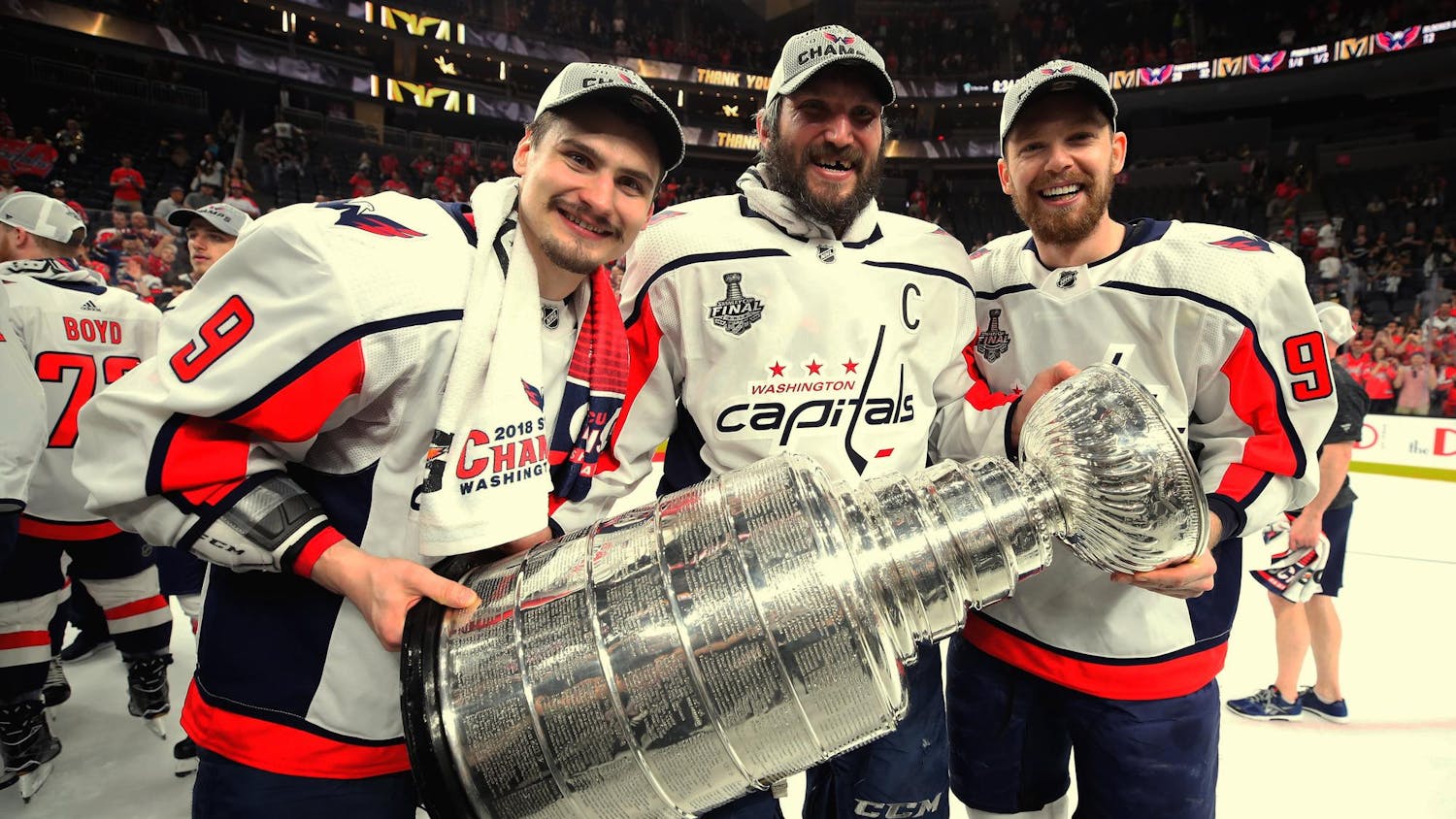If the incoming freshman class was frustrated to have missed out on the spectacle of the men's lacrosse team's national championship last spring, it needn't be worried.
It's not too hard to imagine that the men's lacrosse NCAA Div. III championship last spring — the first NCAA team championship in Tufts history — might be the beginning of a dynasty.
The Jumbos effectively dismantled historical powerhouse Salisbury (Md.) 9-6 in the title game in Baltimore on May 30. They edged Cortland (N.Y.) State in a 10-9 semifinal comeback victory that was probably even more impressive than the championship game itself.
In a final four chock-full of some of the best programs in Div. III, few ever considered that Tufts could have pulled off what it did in its most impressive season ever — one that included, most notably, a 20-1 overall record, a NESCAC championship and a national championship.
With the exception of the team, the coaching staff and maybe a few optimistic parents, nobody expected this. Wildly unexpected championships are usually synonymous with words like "luck" or "fluke," but not with this team — they're too talented to be called lucky. In fact, with the majority of the squad coming back in the spring, it seems that the Jumbos are still trending upward.
The incoming freshmen are extremely strong and will hopefully infuse the returning players with continued enthusiasm and support on and off the field, as any great recruiting class would.
"We've only had one captain's practice so it's really early, but we have a bunch of guys from great high school programs and we're really excited about this incoming class," senior attackman Ryan Molloy said.
"I hope that our run to the national championship really put Tufts on the map and that the caliber of recruits will continue to improve," senior longpole midfielder Alec Bialosky added. "[Head] coach Mike Daly talks about leaving everything better than you found it, so hopefully we can do that with the program."
Returning to the team next year are Molloy, NESCAC Player of the Year senior D.J. Hessler and junior Sean Kirwan, one of the most prolific attacking threesomes in the nation. Every team they face knows the damage they can do, plans a defense around them and inevitably still gets burned, which proves that great timing and field vision cannot be stopped when executed perfectly.
Another key return is junior faceoff specialist Nick Rhoads, who came up huge in the most important moments of the Jumbos' season. Most notably, his work at the faceoff X in the NCAA championship game allowed the Jumbos to get out to a 7-1 lead. One of his most impressive spans of faceoff domination, though, came in the NESCAC championship game against Middlebury, in which he won 18 of 27 draws. Rhoads helped keep a strong, possessive Panthers offense in check long enough for the Jumbos to do their own damage on offense and narrowly win their first-ever NESCAC title.
"Everyone knows about the attack, and they deserve all the attention they get," Bialosky said. "Rhoads is a huge part of our team, as our run-and-gun style of offense really thrives when we can score and win face-offs to get our runs going."
Then there's junior goalie Steve Foglietta. The most important position on the field was won by Foglietta after a few test runs early in the season with the starting position up for grabs. He had his ups and downs but came through with strong performances late in games, particularly against Cortland and Salisbury.
Although the championship-winning defense will be affected more significantly by the graduation of Eytan Saperstein (LA '10), Evan Crosby (LA '10), Darius Bittle-Dockery (LA '10) and defensive middies Zach Groen (LA '10), Mike Droesch (E '10) and Doug DiSesa (LA '10), there is a strong core of close defensemen and defensive middies waiting to fill those positions. If the Jumbos can win the possession battle through Rhoads, if senior midfielder Matt Witko can keep some of the offensive pressure off of the attack and if Bialosky can continue to move the ball from the defense to the offense in both settled and unsettled situations, then this team can potentially be stronger than ever.
"Our entire team is important to our success," Hessler said. "We have so much talent on our team that it really is never just an individual or a duo. They are very important players to our team success and were so last year as well. Their leadership will be very important for this upcoming season."
"We have so many weapons," Molloy added. "If the defense focuses on the three of us [Molloy, Hessler, Kirwan], then it makes it easier for a Matt Witko or a Kevin McCormick to take over. Rhoads' success at the faceoff X was one of the main reasons we had the success we had last year and he gives us that chance of being successful this upcoming season."
The case for the massive potential of the team in 2011 is extremely strong considering the growing number of victories tracked over recent seasons. In 2007, the Jumbos beat Middlebury for the first time in 40 years to clinch the first seed in the NESCAC tournament, but were unable to beat the Panthers in '08 or '09. This year, the Jumbos beat the Panthers three times: in the regular season, the NESCAC championship and the quarterfinals of the NCAA tournament.
"Beating Middlebury was a huge confidence boost in the season because they were the only NESCAC team that our [current senior] class had not beaten," Bialosky said. "After that, the NESCAC and NCAA playoff games were just taking it one game at a time. We knew we were capable of beating them, so all we had to do was focus on our own team and make sure we were playing our best."
Daly's winning philosophy, in addition, has not gone unnoticed by high school recruits. Every year, the recruiting class appears to be getting stronger, and last season's success will only fuel that trend. This is the way dynasties are built.
For example, when Middlebury won its first national championship in 2000, they were in the same position as Tufts is now: young and offensively dynamic. The Panthers went on to win back-to-back-to-back titles. Salisbury has three-peated and gone back-to-back on two other occasions in its successful history that includes eight national championships. From 2006 to 2009, Cortland made the NCAA finals, winning twice.
In other words, history shows that these kinds of streaks aren't uncommon. In fact, in the 31-year history of the NCAA Div. III tournament, there has never been a team to make it to the championship that hasn't made it at least twice. With the exception of Roanoke (who made the finals in '83 and '92), every team to have played in the title game has played in or won the championship again within three years of its first appearance. Washington (Md.) College, with eight appearances in the final, is the only team besides Tufts to have only won one title.
But to the current NCAA champs, stats aren't nearly as important as the work they've put in over the summer and will continue to do this fall in preparation for next spring.
"These stats mean nothing to me," Hessler said. "All those results have no influence on what we do or how we prepare for the season."
"Statistics are always entertaining, but nothing changes next season," Molloy added. "We're going to come in with the same exact goal we did last year, which is to win a national championship. We know that we're going to have a target on our back and we're going to get everyone's best game but that just means we need to focus and work just a little bit harder."
Well, the secret's out of the bag: Last year's championship was unexpected. Next year's won't be.





